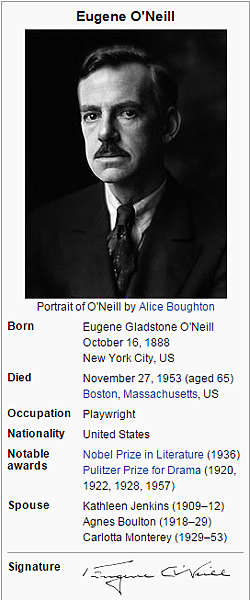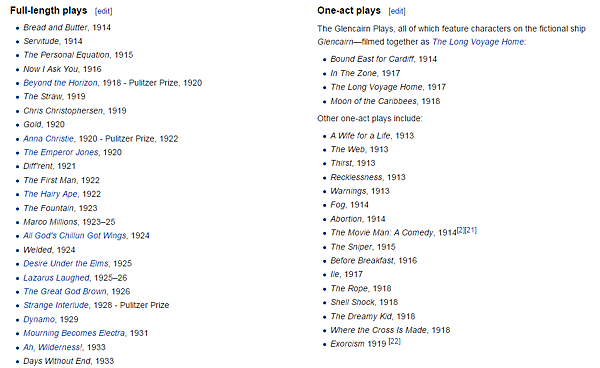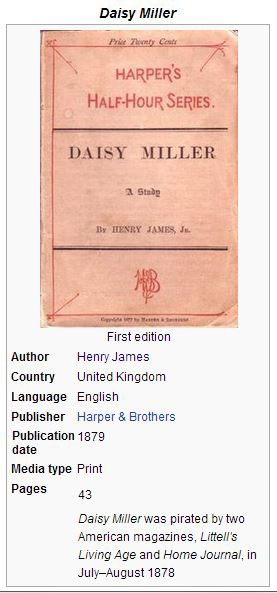移民來自英、荷、德<--1865-1914-->許多為波蘭移民,移民愛說傳染病都是別國人帶進來的
1492 年哥倫布發現新大陸,那時歐洲人摧毀印加文化,但是帶來玉米等食物,也帶來了傳染病,例如:梅毒
1922年 是現代主義modernism的最高峰,現代主義又稱後文藝復興、後浪漫主義
Modernism is a philosophical movement that, along with cultural trends and changes, arose from wide-scale and far-reaching transformations in Western society in the late 19th and early 20th centuries. Among the factors that shaped Modernism were the development of modern industrial societies and the rapid growth of cities, followed then by the horror of World War I. Modernism also rejected the certainty of Enlightenment thinking, and many modernists rejected religious belief.[2][3]
Tariff 關稅
 關稅暨貿易總協定(General Agreement on Tariffs and Trade,簡稱GATT),是在布雷頓森林體系中,為規範和促進國際貿易和發展而締結的國際協定。
關稅暨貿易總協定(General Agreement on Tariffs and Trade,簡稱GATT),是在布雷頓森林體系中,為規範和促進國際貿易和發展而締結的國際協定。
1930年代的全球經濟大蕭條被認為是導致二戰的重要原因之一。而導致經濟大蕭條的「貿易保護主義」在戰後也被提出反省,使得更加順暢的國際貿易能夠實現。在1944年布雷頓森林協定的框架下,再加上國際貨幣基金(IMF)和國際復興開發銀行(IBRD,即世界銀行)的協助,許多國家在1947年10月簽署了GATT,並在隔年(1948年)正式生效。
GATT的原則是自由(GATT第11條:將貿易限制措施轉為關稅,以及降低關稅稅率)、非歧視(最惠國待遇、國民待遇)、多元化,必須在這三項原則下進行自由貿易往來。
莎莎老師喜歡的作者:Engene O'Neil --

Eugene Gladstone O'Neill (October 16, 1888 – November 27, 1953) was an American playwright and Nobel laureatein Literature. His poetically titled plays were among the first to introduce into American drama techniques of realismearlier associated with Russian playwright Anton Chekhov, Norwegian playwright Henrik Ibsen, and Swedish playwrightAugust Strindberg. His plays were among the first to include speeches in American vernacular and involve characters on the fringes of society, where they struggle to maintain their hopes and aspirations, but ultimately slide into disillusionment and despair. Of his very few comedies, only one is well-known (Ah, Wilderness!).[1][2] Nearly all of his other plays involve some degree of tragedy and personal pessimism.
有名的書:

 privileged upper class 上層階級
privileged upper class 上層階級
 Malpractice 不當行為
Malpractice 不當行為
In the law of torts, malpractice is an "instance of negligence or incompetence on the part of a professional".[1]
Types include medical malpractice ("A doctor's failure to exercise the degree of care and skill that a physician or surgeon of the same medical specialty would use under similar circumstances") and legal malpractice ("A lawyer's failure to render professional services with the skill, prudence, and diligence that an ordinary and reasonable lawyer would use under similar circumstances.").
Edith Wharton 當出現international theme (又稱transatlantic theme)影響出free will (自己選擇的概念),此來自聖經
Edith Wharton (/ˈiːdɪθ ˈhwɔrtən/; born Edith Newbold Jones; January 24, 1862 – August 11, 1937) was a Pulitzer Prize-winning American novelist, short story writer, and designer. She was nominated for the Nobel Prize in Literaturein 1927, 1928 and 1930.[1] Wharton combined her insider's view of America's privileged classes with a brilliant, natural wit to write humorous, incisive novels and short stories of social and psychological insight. She was well acquainted with many of her era's other literary and public figures, including Theodore Roosevelt.
Writing style[edit]
Wharton first began inventing stories when she was six. She would walk around the living room holding a book while reciting her story. In 1873, Wharton wrote ashort story and gave it to her mother to read. Her mother criticized the story, so Wharton decided to just write poetry. Before she was fifteen, she wrote Fast and Loose (1877). In her youth, she wrote about society. Her central themes came from her experiences with her parents. She was very critical of her own work and would write public reviews criticizing it. She also wrote about her own experiences with life. “Intense Love’s Utterance” is a poem written about Henry Stevens.[10]
In 1889 she sent out three poems for publication. They were sent to Scribner’s, Harper’s and Century. Edward L. Burlingame published “The Last Giustiniani” forScribner’s. It was not until Wharton was 29 that her first short story was published. "Mrs. Manstey's View" had very little success, and it took her more than a year to publish another story. She completed "The Fullness of Life" following her annual European trip with Teddy. Burlingame was critical of this story but Wharton did not want to make edits to it. This story, along with many others, speaks about her marriage. She sent Bunner Sisters to Scribner’s in 1892. Burlingame wrote back that it was too long for Scribner’s to publish. This story is believed to be based on an experience she had as a child. It did not see publication until 1916 and is included in the collection called Xingu. After a visit with her friend, Paul Bourget, she wrote “The Good May Come” and “The Lamp of Psyche”. “The Lamp of Psyche” was acomical story with verbal wit and sorrow. After “Something Exquisite” was rejected by Burlingame, she lost confidence in herself. She started “travel writing” in 1894.[10]
In 1901, Wharton wrote a two act play called “Man of Genius”. This play was about an English man who was having an affair with his secretary. The play was rehearsed, but was never produced. She collaborated with Marie Tempest to write another play, but the two only completed four acts before Marie decided she was no longer interested in costume plays. “The Joy of Living,” criticized for its name because the heroine swallows poison at the end, was a short lived Broadwayproduction. It was, however, a successful book.[10]
Many of Wharton's novels are characterized by a subtle use of dramatic irony. Having grown up in upper-class, late-nineteenth-century society, Wharton became one of its most astute critics, in such works as The House of Mirth and The Age of Innocence.
 working people 勞工階級
working people 勞工階級
The working class (also labouring class, proletariat, or laboring class) is the class of people employed for wages, especially in manual or industrial work.[1] Working-class jobs include blue-collar jobs, but also include large amounts ofwhite-collar and service work. The working class relies on earnings from wage labour, thereby including a large majority of the population in industrialized economies, of the urban areas of non-industrialized economies, and also a significant number of the rural workforce worldwide.
In Marxist theory and socialist literature, working class is often used synonymously with the term proletariat, and includes all those who expend either mental or physical labor to produce economic value for those who own themeans of production. It thus includes knowledge workers and white-collar workers who work for a salary.[2] Since wages can be very low, and since the state of unemployment is by definition a lack of independent means of income generation and a lack of waged employment, the working class also includes the extremely poor and unemployed, which are sometimes called the lumpenproletariat.
 middle people 知識階級(三師:老師、醫師、律師...)
middle people 知識階級(三師:老師、醫師、律師...)
The Peoples of Middle-earth (1996) is the 12th and final volume of The History of Middle-earth, edited by Christopher Tolkien from the unpublished manuscripts of his father J. R. R. Tolkien. Some characters (including Anairë, the wife of Fingolfin) only appear here. So too do a few other works that did not fit anywhere else.
 song:Let it snow -Frank Sinatra
song:Let it snow -Frank Sinatra
https://www.youtube.com/watch?v=vGRC2LYmHfU

必考ID:
 Naturalism-->影響 heredity 遺傳 / social environment 環境的影響
Naturalism-->影響 heredity 遺傳 / social environment 環境的影響
Naturalism was a literary movement or tendency from the 1880s to 1930s that used detailed realism to suggest that social conditions, heredity, and environment had inescapable force in shaping human character. It was a mainly unorganizedliterary movement that sought to depict believable everyday reality, as opposed to such movements as Romanticism orSurrealism, in which subjects may receive highly symbolic, idealistic or even supernatural treatment.
Background[edit]
Naturalism was an outgrowth of literary realism, a prominent literary movement in mid-19th-century France and elsewhere. Naturalistic writers were influenced by Charles Darwin's theory of evolution.[1] They often believed that one's heredity andsocial environment largely determine one's character. Whereas realism seeks only to describe subjects as they really are, naturalism also attempts to determine "scientifically" the underlying forces (e.g., the environment or heredity) influencing the actions of its subjects. Naturalistic works often include uncouth or sordid subject matter; for example, Émile Zola's works had a frankness about sexuality along with a pervasive pessimism. Naturalistic works exposed the dark harshness of life, including poverty, racism, violence, prejudice, disease, corruption, prostitution, and filth. As a result, naturalistic writers were frequently criticized for focusing too much on human vice and misery.
 Realism (literary)-->19 century French culture
Realism (literary)-->19 century French culture
Literary realism is part of the realist art movement beginning with mid nineteenth-century French literature (Stendhal), Russian literature (A.S. Pushkin) and extending to the late nineteenth and early twentieth-century. Literary realism, in contrast to idealism, attempts to represent familiar things as they are.[1] Realistauthors chose to depict everyday and banal activities and experiences, instead of using a romanticized or similarly stylized presentation. Literary critic Ian Watt, however, dates the origins of realism in United Kingdom to the early 18th-century novel.[2] Subsequent related developments in the arts are naturalism, social realism, and in the 1930s, socialist realism.
19 century French culture
The culture of France and of the French people has been shaped by geography, by profound historical events, and by foreign and internal forces and groups. France, and in particular Paris, has played an important role as a center ofhigh culture since the 17th century, first in Europe, and from the 19th century on, world wide. From the late 19th century, France has also played an important role in cinema, fashion and cuisine. The importance of French culture has waxed and waned over the centuries, depending on its economic, political and military importance. French culture today is marked both by great regional and socioeconomic differences and by strong unifying tendencies.
 小考review:
小考review:
5. Which of the following best describes the effects of the end of Reconstruction in the southern states in 1877?
a) African Americans enjoyed unprecedented economic opportunities and protection of their civil rights.
b) The southern states protected African Americans’ right to vote and to wield political power but continued to practice de facto segregation.
c) The southern states instituted segregationist Jim Crow laws and worked to erode the Constitutional amendments that guaranteed the civil rights of African Americans.
d) The vast majority of African Americans had fled the South for northern urban centers before 1877.
字首為se---分開的 / amendment = fix (v.)
12. In 1870, the U.S. population was 38.5 million; by 1920 it was 123 million. What was responsible for the dramatic increase in population during this period?
a) More Americans married and had large families.
b) Scientific advancements led to a healthier and longer-lived population.
c) Immigrants from England poured into New England, seeking religious liberty.
d) Immigrants from southern and eastern Europe poured into the northeastern United States.
字尾為ants 代表" 人 " ex. amountants
 Modernist literature現代主義
Modernist literature現代主義
Literary modernism, or modernist literature, has its origins in the late 19th and early 20th centuries, mainly in Europe and North America. Some philosophers, like Georg Lukacs, theorized that literary modernism had its origins in the philosophy of Walter Benjamin. Modernism is characterized by a self-conscious break with traditional styles of poetry and verse. Modernists experimented with literary form and expression, adhering to Ezra Pound's maxim to "Make it new".[1] The modernist literary movement was driven by a conscious desire to overturn traditional modes of representation and express the new sensibilities of their time.[2] The horrors of the First World War saw the prevailing assumptions about society reassessed.[3] Thinkers such as Sigmund Freud and Karl Marx questioned the rationality of mankind.
作者:Wallace Stevens (1875–1955)
Wallace Stevens (October 2, 1879 – August 2, 1955) was an American Modernist poet. He was born in Reading, Pennsylvania, educated at Harvard and then New York Law School, and he spent most of his life working as an executive for an insurance company in Hartford, Connecticut. He won the Pulitzer Prize for Poetry for his Collected Poems in 1955.
Some of his best-known poems include "Anecdote of the Jar", "Disillusionment of Ten O'Clock", "The Emperor of Ice-Cream", "The Idea of Order at Key West", "Sunday Morning", "The Snow Man", and "Thirteen Ways of Looking at a Blackbird."
 Stephen Crane 是少年pi奇幻漂流的原形 movie :刺激1995改編自此
Stephen Crane 是少年pi奇幻漂流的原形 movie :刺激1995改編自此
Stephen Crane (November 1, 1871 – June 5, 1900) was an American author. Prolific throughout his short life, he wrote notable works in the Realist tradition as well as early examples of American Naturalism and Impressionism. He is recognized by modern critics as one of the most innovative writers of his generation.
The eighth surviving child of Protestant Methodist parents, Crane began writing at the age of four and had published several articles by the age of 16. Having little interest in university studies, he left college in 1891 to work as a reporter and writer. Crane's first novel was the 1893 Bowery tale Maggie: A Girl of the Streets, generally considered by critics to be the first work of American literary Naturalism. He won international acclaim in 1895 for his Civil War novel The Red Badge of Courage, which he wrote without having any battle experience.
In 1896, Crane endured a highly publicized scandal after appearing as a witness in the trial of a suspected prostitute, an acquaintance named Dora Clark. Late that year he accepted an offer to travel to Cuba as a war correspondent. As he waited in Jacksonville, Florida, for passage, he met Cora Taylor, the madam of a brothel, with whom he began a lasting relationship. En route to Cuba, Crane's ship sank off the coast of Florida, leaving him and others adrift for several days in adinghy. Crane described the ordeal in "The Open Boat". During the final years of his life, he covered conflicts in Greece (accompanied by Cora, recognized as the first woman war correspondent) and later lived in England with her. He was befriended by writers such as Joseph Conrad and H. G. Wells. Plagued by financial difficulties and ill health, Crane died oftuberculosis in a Black Forest sanatorium in Germany at the age of 28.
At the time of his death, Crane was considered an important figure in American literature. After he was nearly forgotten for two decades, critics revived interest in his life and work. Crane's writing is characterized by vivid intensity, distinctive dialects, and irony. Common themes involve fear, spiritual crises and social isolation. Although recognized primarily for The Red Badge of Courage, which has become an American classic, Crane is also known for his poetry, journalism, and short stories such as "The Open Boat", "The Blue Hotel", "The Bride Comes to Yellow Sky", and The Monster. His writing made a deep impression on 20th-century writers, most prominent among them Ernest Hemingway, and is thought to have inspired the Modernists and theImagists.


《刺激1995》(英語:The Shawshank Redemption)是一部1994年上映的美國電影,由法蘭克·戴倫邦特執導,改編自暢銷作家史蒂芬·金的原著作品《四季奇譚》中收錄的《麗塔海華絲與蕭山克監獄的救贖》。電影中的男主角安迪由提姆·羅賓斯飾演,男配角瑞德由摩根·費里曼飾演,劇情主要圍繞著安迪在獄中的生活,闡述希望、自由、體制化等概念。
從電影發行以來至今,《刺激1995》在網際網路電影資料庫(IMDb)的史上最佳250部電影影迷評選中,一直以來都和《教父》形成第一名與第二名之間的拉鋸戰,也是至今最多影迷參與評分的電影[1]。
 Robert frost--poem:Stopping by Woods on a Snowy Evening(p.1923)
Robert frost--poem:Stopping by Woods on a Snowy Evening(p.1923)
Robert Lee Frost (March 26, 1874 – January 29, 1963) was an American poet. His work was initially published in England before it was published in America. He is highly regarded for his realistic depictions of rural life and his command of American colloquial speech.[2] His work frequently employed settings from rural life in New England in the early twentieth century, using them to examine complex social and philosophical themes. One of the most popular and critically respected American poets of the twentieth century,[3]Frost was honored frequently during his lifetime, receiving four Pulitzer Prizes for Poetry. He became one of America's rare "public literary figures, almost an artistic institution." [3] He was awarded the Congressional Gold Medal in 1960 for his poetical works. On July 22, 1961 Frost was named Poet laureate of Vermont by the state legislature through Joint Resolution R-59 of the Acts of 1961, which also created the position.
poem:Stopping by Woods on a Snowy Evenin
 Wallace Stevens--Anecdote of the Jar (p.1957)
Wallace Stevens--Anecdote of the Jar (p.1957)
Wallace Stevens (October 2, 1879 – August 2, 1955) was an American Modernist poet. He was born in Reading, Pennsylvania, educated at Harvard and then New York Law School, and he spent most of his life working as an executive for an insurance company in Hartford, Connecticut. He won the Pulitzer Prize for Poetry for his Collected Poems in 1955.
Some of his best-known poems include "Anecdote of the Jar", "Disillusionment of Ten O'Clock", "The Emperor of Ice-Cream", "The Idea of Order at Key West", "Sunday Morning", "The Snow Man", and "Thirteen Ways of Looking at a Blackbird."
Poam:(p.1957)
Anecdote of the Jar
Wallace Stevens
I placed a jar in Tennessee,
And round it was, upon a hill.
It made the slovenly wilderness
Surround that hill.
The wilderness rose up to it,
And sprawled around, no longer wild.
The jar was round upon the ground
And tall and of a port in air.
It took dominion 主權every where.
The jar was gray and bare.
It did not give of bird or bush,
Like nothing else in Tennessee.
 很多fragmentation ,重點:dominion
很多fragmentation ,重點:dominion
 Ode on a Grecian Urn.(是free association)自由聯想的詩
Ode on a Grecian Urn.(是free association)自由聯想的詩
 豐腴之神:Pan Dionysus
豐腴之神:Pan Dionysus
Dionysus (/daɪ.əˈnaɪsəs/; Greek: Διόνυσος, Dionysos) is the god of the grape harvest, winemaking and wine, of ritual madness, fertility,[2][3] theatre and religious ecstasy in Greek mythology. Alcohol, especially wine, played an important role in Greek culture with Dionysus being an important reason for this life style.[4] His name, thought to be a theonym in Linear B tablets as di-wo-nu-so (KH Gq 5 inscription),[5] shows that he may have been worshipped as early as c. 1500–1100 BC by Mycenean Greeks; other traces of the Dionysian-type cult have been found in ancient Minoan Crete.[6] His origins are uncertain, and his cults took many forms; some are described by ancient sources as Thracian, others as Greek.[7][8][9] In some cults, he arrives from the east, as an Asiatic foreigner; in others, from Ethiopia in the South. He is a god of epiphany, "the god that comes", and his "foreignness" as an arriving outsider-god may be inherent and essential to his cults. He is a major, popular figure of Greek mythology and religion, and is included in some lists of the twelve Olympians. Dionysus was the last god to be accepted into Mt. Olympus. He was the youngest and the only one to have a mortal mother.[10] His festivals were the driving force behind the development of Greek theatre. He is an example of a dying god.
 Journey of the Magi拿著小禮物去找小耶穌 是"信仰文明的破產"
Journey of the Magi拿著小禮物去找小耶穌 是"信仰文明的破產"
"Journey of the Magi" is a 43-line poem written in 1927 by T. S. Eliot (1888–1965). It is one of five poems that Eliot contributed for a series of 38 pamphlets by several authors collectively titled Ariel poems and released by British publishing house Faber and Gwyer (later, Faber and Faber). Published in August 1927, "Journey of the Magi" was the eighth in the series and was accompanied by illustrations drawn by American-born avant garde artist Edward McKnight Kauffer (1890–1954).[1] The poems, including "Journey of the Magi", were later published in both editions of Eliot's collected poems in 1936 and 1963.[2]
In the previous year, Eliot had converted to Anglo-Catholicism and his poetry, starting with the Ariel Poems (1927–1931) and Ash Wednesday (1930), took on a decidedly religious character.[3] In the poem, Eliot retells the story of the Magi who travelled to Palestine to visit the newborn Jesus according to the Gospel of Matthew. It is a narrative, told from the point of view of one of the magi, that expresses themes of alienation and a feeling of powerlessness in a world that has changed. The poem's dramatic monologue incorporates quotations and literary allusions to works by earlier writers Lancelot Andrewes and Matthew Arnold.
 Leavens of grass
Leavens of grass

Leaves of Grass is a poetry collection by the American poet Walt Whitman (1819–1892). Though the first edition was published in 1855, Whitman spent his entire life writing and re-writing Leaves of Grass,[1] revising it in several editions until his death. This resulted in vastly different editions over four decades—the first a small book of twelve poems and the last a compilation of over 400 poems.
The poems of Leaves of Grass are loosely connected and each represents Whitman's celebration of his philosophy of life and humanity. This book is notable for its discussion of delight in sensual pleasures during a time when such candid displays were considered immoral. Where much previous poetry, especially English, relied on symbolism, allegory, and meditation on the religiousand spiritual, Leaves of Grass (particularly the first edition) exalted the body and the material world. Influenced by Ralph Waldo Emerson and the Transcendentalist movement, itself an offshoot of Romanticism, Whitman's poetry praises nature and the individual human's role in it. However, much like Emerson, Whitman does not diminish the role of the mind or the spirit; rather, he elevates the human form and the human mind, deeming both worthy of poetic praise.
With one exception, the poems do not rhyme or follow standard rules for meter and line length. Among the poems in the collection are "Song of Myself", "I Sing the Body Electric", "Out of the Cradle Endlessly Rocking". Later editions included Whitman's elegy to theassassinated President Abraham Lincoln, "When Lilacs Last in the Dooryard Bloom'd".
 Daisy Miller
Daisy Miller

Daisy Miller is a novella by Henry James that first appeared in Cornhill Magazine in June–July 1878, and in book form the following year.[1] It portrays the courtship of the beautiful American girl Daisy Miller by Winterbourne, a sophisticated compatriot of hers. His pursuit of her is hampered by her own flirtatiousness, which is frowned upon by the other expatriates when they meet in Switzerlandand Italy.